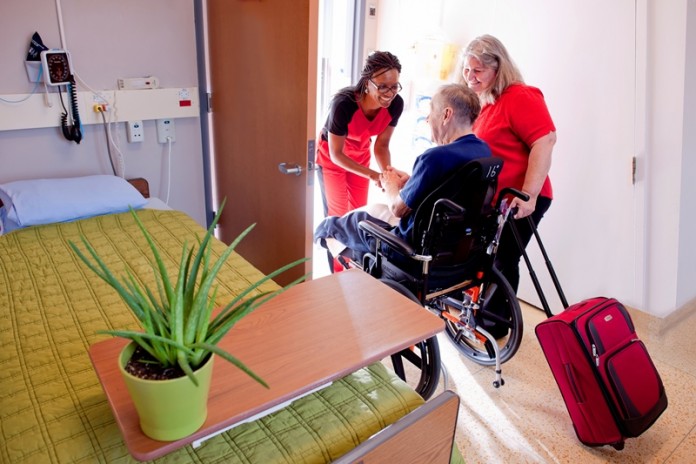
Two years ago Providence Healthcare, a leading provider of rehabilitative care in Toronto’s East end, embarked on a collaborative partnership with Saint Elizabeth, a national leader in home and community care, to create a best-practice model of diabetes care that would improve patient outcomes while reducing diabetes-related health system impact.
The project was sparked by an initial discussion of the needs and challenges this patient population faces as they transition between care settings. That spark quickly turned into a flame when key leaders and decision makers within both organizations combined their respective strengths and expertise to create a bold new vision for diabetes management from hospital to home. From there, a broader team was engaged to bring the vision to life.
MORE: BUILDING A HEALTH SYSTEM TO MEET THE NEEDS OF AN AGING POPULATION
With the leadership of an interprofessional steering committee, three subgroups set to work on mapping and analyzing the patient and caregiver journey, including both the current and future state. The teams worked collaboratively throughout the process to ensure a broad focus on continuous quality improvement driven by patient experiences. Eli Lilly Canada has also been involved in the project from the outset, providing resources and consultation to support the implementation of best practices in diabetes care.
MORE: TECHNOLOGY ENABLED HOME CARE
Today, several inpatient processes at Providence have been streamlined to improve continuity between care settings. For the past five years, improving patient flow has been a strategic focus for Providence, working to achieve smoother transitions to help patients get home safely – and sooner.
Thanks to the partnership, many of these changes have been informed by Saint Elizabeth’s clinical expertise and knowledge of the community setting. For example, insulin pens that patients receive in the hospital have been changed to ones they will use when they return home.
“A simple change like this may seem insignificant but it can actually have a big impact in helping people feel more confident and in control of their diabetes when they return to their day-to-day life,” says Trish Maxwell, Regional Director at Saint Elizabeth. “The opportunity to partner with Providence has allowed us to bring this community mentality into the hospital, where they are 100% focused on achieving the best patient care and outcomes across the continuum.”
Other changes the partners embarked on were decidedly more complex. “We have a new approach to the way we do blood sugar monitoring,” explains Maggie Bruneau, Vice President, Partnerships and Chief Nurse Executive at Providence. “Both the nurse and the patient use their own monitors to track, watch for trends, and compare blood sugar results. The patient becomes accustomed to using that glucose monitor, and they take it home with them.” This puts more control into the hands of the patient – what they learn while in hospital can be more successfully transferred to the home and community setting.
MORE: GETTING PATIENTS HOME SOONER
Providence physicians have also been supportive of the new model, which involves pharmacists leading the insulin management process, and directing a change of insulin dosage, as required.
Eli Lilly Canada is supporting the use of an internationally-validated tool known as Conversation Maps™ that will be used for group education sessions on diabetes self-management. These sessions will be led by a Saint Elizabeth community nurse while the patient is still in hospital; the education will continue, along with additional follow-up support, after the patient returns home.
As the next phase of the partnership, Saint Elizabeth is leading a research study in collaboration with Providence that will examine the impacts of an enhanced approach to diabetes education and support as patients transition from hospital to home.
The study is being conducted as a single-blinded, non-randomized trial, which will follow patients in both the intervention and control groups over a period of one year. The researchers will evaluate the relative effect of the enhanced approach on diabetes-related health outcomes, along with self-management practices, patient satisfaction and the overall quality of transitions from hospital to home. Full results are expected in 2016.

